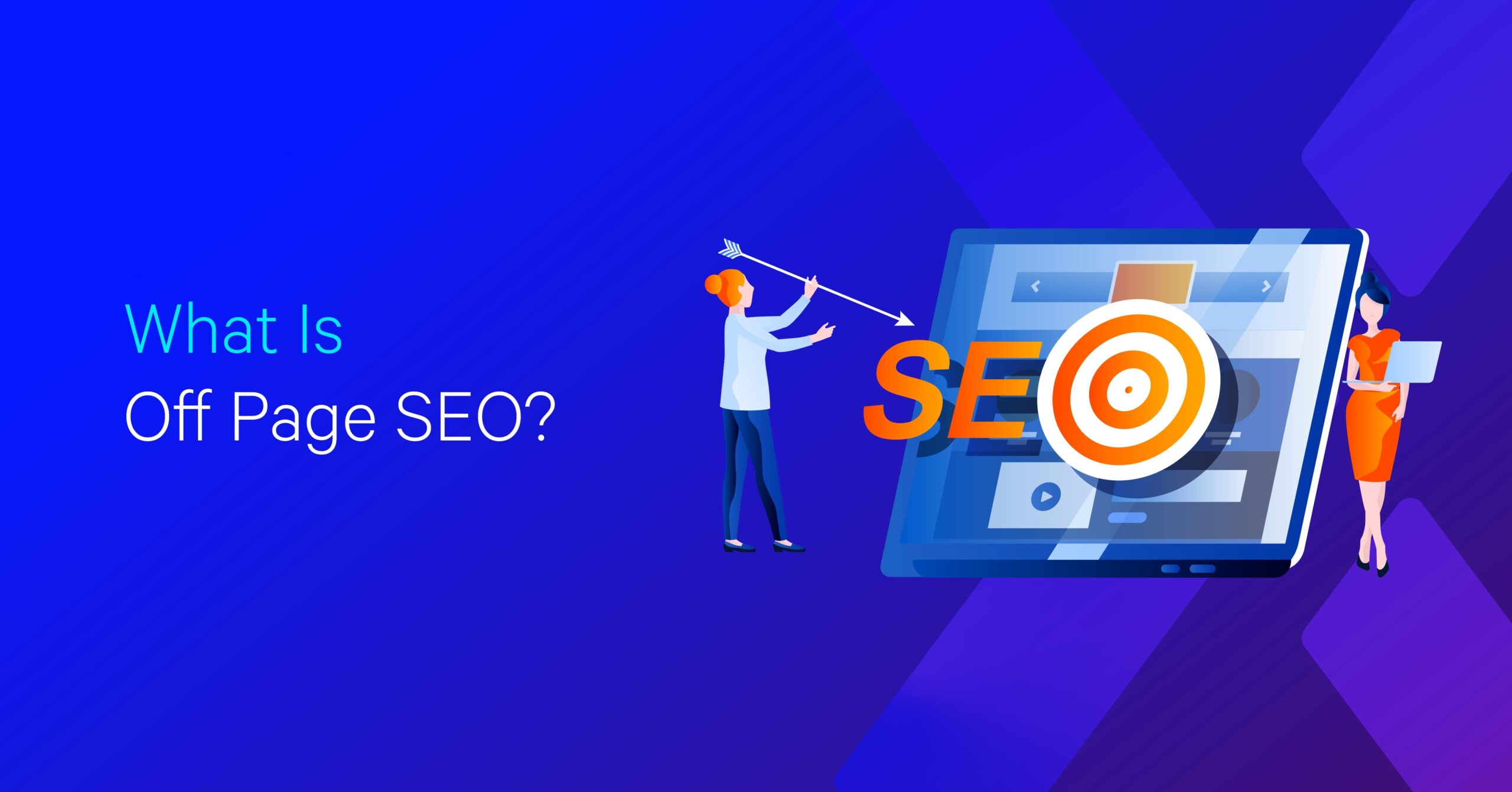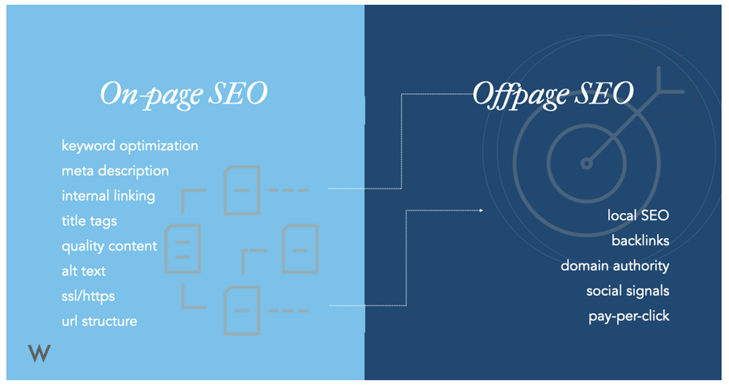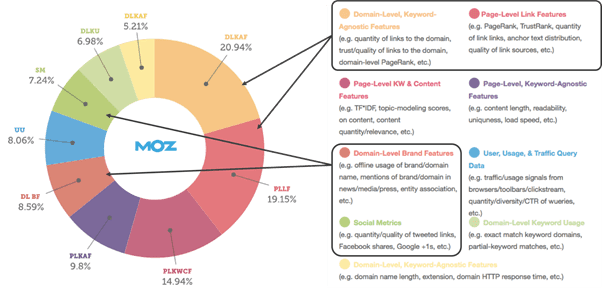What Is Off-Page SEO?

Hand off the toughest tasks in SEO, PPC, and content without compromising quality
Explore ServicesDo you want to rank your site on Google and increase your brand’s visibility and organic search traffic?
Perhaps you’ve done everything possible for your web page optimization. From image optimization and keyword research to develop a site structure and internal linking strategy. Nonetheless, you’re still having difficulty ranking on Google.
It’s possible that’s because you’ve only finished one half of the puzzle. What about the other half?
Off-page SEO is a critical component of any successful digital marketing strategy.
In this guide, we will delve deep into off-page SEO to help you understand what off-page SEO is, why it is so important, what are off-site SEO factors, and the best off-page SEO techniques to use if you’d like to rank on Google and drive growth for your site.
What Is Off-Page SEO?
The term “off-page SEO” (also known as “off-site SEO”) refers to actions taken outside of your own website to influence your rankings in search engine results pages (SERPs).
Off-page SEO, in short, covers all SEO tactics that take place outside of your own website.
When evaluating a page’s rating, search engines use a variety of criteria. While some of the variables are dependent on website content and performance, Google also gets information about your website from sources other than your domain. That is why off-page SEO is so important.
One of the top-ranking elements is link building, which is an efficient off-page SEO technique. That’s because Google is based on PageRank, an algorithm that evaluates the amount and quality of a page’s backlinks.
An off-page SEO strategy complements your website efforts (i.e., on-page SEO) by working to increase your domain’s reputation, relevance, trustworthiness, and authority.
Other off-page SEO tactics such as brand building, citation building, content marketing, social media, local SEO, press releases, podcasts, influencer marketing, and more all play an important part in a comprehensive SEO strategy.
But as a simple explanation of off-page SEO, this covers any tactics that you use that don’t involve making changes to your own website or publishing content on your own site.
Think of it like this:
Your website = on-page SEO
Another site or platform = off-page SEO

Why Is Off-Page SEO Important?
Off-page SEO is extremely beneficial because it informs search engines that your website is important to others on the internet. Every link you receive acts as a recommendation from another source that your website is of high quality.
This allows external sources to act as tie-breakers for websites with the same quality of on-page SEO, allowing search engine metrics to determine the best way to rank websites on search engine results pages (SERPs).
Off-site SEO is an important factor in ranking for competitive keywords, which is why it is such a crucial component of a content marketing strategy. Building your website’s authority is critical if you want to rank high in Google search and other search engine results for specific keywords. Off-site SEO practices are essential to establishing site authority.
While we don’t know the exact algorithm Google uses to rank content, data from Moz’s Search Engine Ranking Factors study indicates that off-site SEO-related factors likely account for more than half of the ranking factor weight.

Off-page FAQ
How does off-page SEO work?
Off-page search engine optimization is more than just linking.
It’s more complicated than that. Brand mentions, for example (your site URL or brand name referenced on another site without a hyperlink), are an important component of off-page search signals.
As knowledgeable bloggers, webmasters, and content marketers, we generally begin with on-page SEO.
However, we do not stop there. Because, for the most part, the things that matter to Google happen away from your website.
While you may be able to obtain lots of low-quality links from spammy or untrustworthy websites, they will not help your business rank well in search results.
Off-page SEO simply informs Google about what other people think about your website. For example, if you have a lot of good links going to your site, search engines will believe you have outstanding content – the kind that consumers value.
Otherwise, why would anybody bother linking to it?
People only quote, reference, and distribute content that they find interesting. Even if you have a brick-and-mortar store, if your product is useful and reasonably priced, you will receive a lot of word-of-mouth recommendations from your present consumers.
Google also considers the anchor text of external links to a website when determining the quality, relevancy, and usefulness of any link obtained from that page.
Search engine optimization may be intimidating, especially if you don’t know what measures to follow to rank your new content pages in Google’s top 10. However, if you can acquire a rudimentary grasp of on-page and off-page SEO, you will be miles ahead of your competitors.
What is more important: on-page SEO or off-page SEO?
It is not a matter of choosing between on-page and off-page SEO; that would be equivalent to having to choose between a foundation and a roof for your home. On-page and off-page SEO complement each other to improve your search engine rankings.
On-page SEO and off-page SEO are the two components of your search engine optimization strategy. Both are critical to the success of your SEO efforts, but they are on opposing sides of the coin.
Off-page SEO focuses on increasing the authority of your domain through content creation and earning backlinks from other websites, whereas on-page SEO focuses on optimizing parts of your website that are under your control.
To understand the difference between the two, you must first understand how search engine algorithms work on a fundamental level.
When comparing your site to other sites on the web, search engines look at two major buckets:
- On-page SEO considers what your site (or page) is about.
- Off-page SEO considers your site’s domain authority and popularity.
Simply put, what you rank for is heavily influenced by on-page SEO factors, whereas how high you rank in search results is heavily influenced by off-page SEO factors.
What are the benefits of off-page SEO?
Excellent publicity: Because of the number of links, social media mentions, and so on, the higher the ranking, the more traffic.
PageRank Improvement: Getting your website to rank on the first page of Google is difficult, but you can learn about the ranking factors by using off-page SEO. For example, if a page’s rank is between 0 and 10, it is considered important by Google and is displayed on the first search result page.
Increased Organic Traffic: To implement an effective on-page SEO strategy, you must use advanced rankings, crawl rate, and CTR obtained from a search engine optimization company. In this manner, you tend to attract more organic traffic without having to spend any money on marketing or advertising to promote your website and pages.
Improved Conversion Rates and Earning Potential
Quality organic traffic on your website, providing an excellent user experience, and achieving a higher Google ranking can result in a higher conversion rate, more sales, and increased earnings.
What are the best off-page SEO techniques?
The absolute most powerful approaches to expand your page rankings on search engines include:
Link Building Through Original Content
You must create unique content for submission to various websites. Make fewer but higher-quality links with unique content. The link-building strategy appears simple to those who simply copy and paste the same title tags, alt text, and meta description of the page into every website while link building. It will have a negative influence on the ranking of your website.
Influencer Marketing
After you’ve created great content, don’t be afraid to reach out to industry influencers. Tell them to check out your blog and ask for backlinks from theirs. Make certain that the links come from completely relevant and high-authority domains.
Social Media Marketing. Using social media to promote your piece of content can help it gain traction. Share relevant content on social media channels, such as infographics, blog posts, and more. Optimize your posts for discoverability by using hashtags on Twitter, for example.
Guest Blogging
There are a number of high-quality blogs that welcome a guest posting from a variety of authors. Write a fantastic research paper and reach out to them with the content for a guest post. Don’t worry about the number of links; instead, worry about the quality of the links. Also, as a link-building tactic, ensure broken links are fixed.
Commenting does not always result in high-quality links. Almost all websites make links in comments nofollow. Find high-quality content sites in your niche and persuade them to use your link.
Social Bookmarking Sites
One of the best platforms for promoting your website is social bookmarking sites. When you bookmark your webpage or blog post on popular social bookmarking websites, you drive a lot of traffic to it.
Monitor Your Backlinks: Keeping track of how many backlinks you have and how many you gain over time is an important part of staying on top of your external SEO.
Moz and SEMrush are two SEO tools that can help you find out the marketers that have mentioned you.
An off-page SEO strategy will increase positive brand engagement, whether through links, reviews, social media, or brand mentions.
Off-Page SEO: Only a Piece of the Puzzle
Hopefully, this article has given you a better understanding of off-page SEO.
At a high level, enhancing a website’s off-page SEO entails increasing search engine and user impression of the site’s quality. This is accomplished through white hat SEO, obtaining links from other websites particularly those that are respectable and trustworthy in their own right), mentions of your brand, and sharing of your content.
If you stick to these crucial techniques, you’ll see a rise in your search ranks over time. As your rankings rise, so will the number of visitors and leads flowing to your site, which will have a positive influence on your conversions.
Of course, taking care of off-page SEO is only half the story because on-page SEO is also important. Only when you’ve exhausted both SEO techniques can you be certain that you’ve done all possible to ensure that your website gets discovered in the huge realm of organic search.
Feel free to reach out to us at Loganix to help you with your off-page search engine optimization. You can also use our off-page SEO checklist to get a head start on implementing these strategies.
Hand off the toughest tasks in SEO, PPC, and content without compromising quality
Explore ServicesWritten by Adam Steele on July 27, 2021
COO and Product Director at Loganix. Recovering SEO, now focused on the understanding how Loganix can make the work-lives of SEO and agency folks more enjoyable, and profitable. Writing from beautiful Vancouver, British Columbia.





